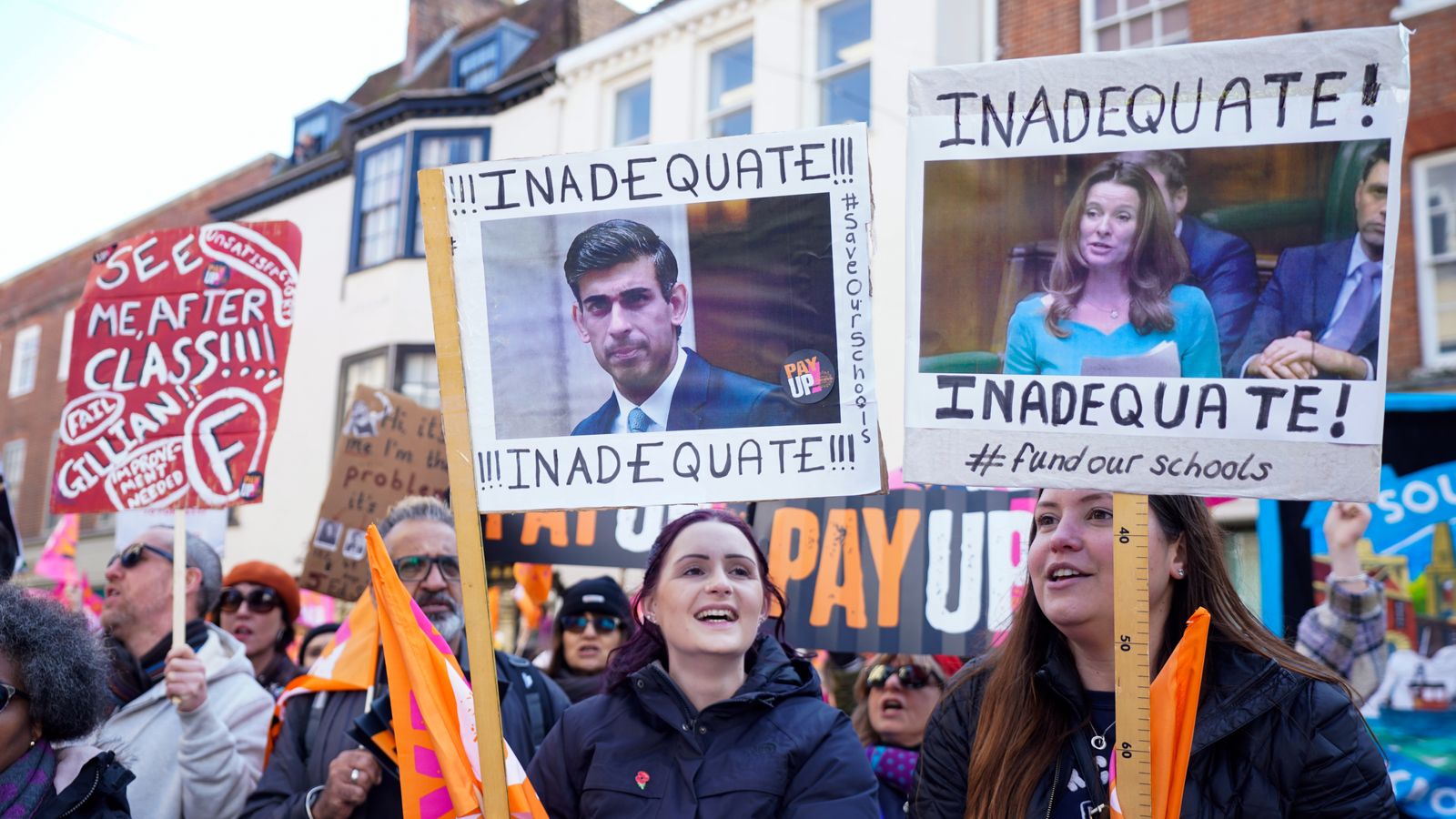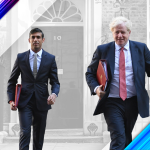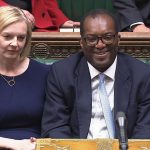The government has been accused of “inhabiting an alternate reality” after it “re-announced” a £2bn funding pledge to help schools.
The Association of School and College Leaders (ASCL) said the extra cash was not sufficient and comes after a decade of cuts “that have left budgets teetering on the brink of disaster”.
On Wednesday, the DfE said schools would start to receive new money from May following the additional £2.3bn investment first promised by Chancellor Jeremy Hunt in his Autumn Statement.
Under the plans, a typical primary school will receive approximately £35,000 and a typical secondary school £200,000.
Education Secretary Gillian Keegan said this would ensure teachers have the resources they need.
But Geoff Barton, General Secretary of the ASCL, said: “The additional money will not be sufficient to cover increased costs in many schools and it is inevitable that there will need to be further cuts.
“The Department for Education (DfE) increasingly seems as though it is inhabiting an alternate reality, utterly divorced from what is actually happening in the system it is meant to oversee.”
Sister of headteacher Ruth Perry says Ofsted chief ‘totally insensitive’ as one word ratings to stay
ChatGPT will make marking coursework ‘virtually impossible’ and shows exams ‘more important than ever’
School leaders union to vote over strike action for first time over pay and staff shortages
The government also said it would relax the rule which says specialist funding for falling pupil numbers should only be for schools judged good or outstanding at their last OFSTED inspection.
It comes after a drop in the number of applications for primary school places in London, with the falling birth rate believed to be the main reason for decline in demand.
The ASCL, along with the National Association of Head Teachers (NAHT) union, said removing the OFSTED rating requirement was welcome but only a minor concession for the challenges schools face.
Paul Whiteman, general secretary of NAHT, said: “The reforms around funding for schools with falling numbers are welcome.
“But this remains a relatively minor tweak that won’t address the more fundamental funding challenges schools are currently facing.”
He said the cash injection was “simply a reannouncement of funding that has already been promised to the sector”.
“No one should be fooled into thinking that this is new money. Even with this funding, there is clear evidence that schools will continue to have make cuts in the face of rapidly rising costs.”
The Institute for Fiscal Studies (IFS) previously said the £2bn funding promised in the autumn statement would allow school spending to return to at least 2010 levels in real-terms.
The announcement today comes as unions are locked in a bitter row with the government over teacher pay, with the National Education Union (NEU) due to strike tomorrow.
According to a survey commissioned by education charity The Sutton Trust, half of school leaders are having to cut back on trips, while two in three are cutting teaching assistants and nearly three in four (71%) say their school has had difficulties recruiting teachers this year.
Read More:
I’m a teacher – here’s why I voted to go on strike
The findings, published on Wednesday, also found 41% of senior leaders said money from the pupil premium – extra funding to support the most disadvantaged youngsters – is being used to plug gaps elsewhere in their school’s budget.
The government said schools could choose how to invest the extra funding they will receive, but it is expected to primarily support salary uplifts for teachers and help with increased running costs, school trips and learning materials.
Among other changes to the National Funding Formula (NFF) to be introduced from 2024-25, councils will be set expectations around the minimum funding they must provide to support schools seeing large increases in pupil numbers.
Schools with more than one site will also receive funding on a consistent national basis to help with extra costs they face due to the need to duplicate services, such as caretaking across multiple sites, the DfE said.
Education Secretary Gillian Keegan said: “Teachers must continue to have the resources they need, and this extra cash will make sure that they do.
“With school funding set to be at its highest ever level next year, even accounting for inflation, parents everywhere can be confident schools are being supported to let teachers get on and do what they do best – teach.”






















